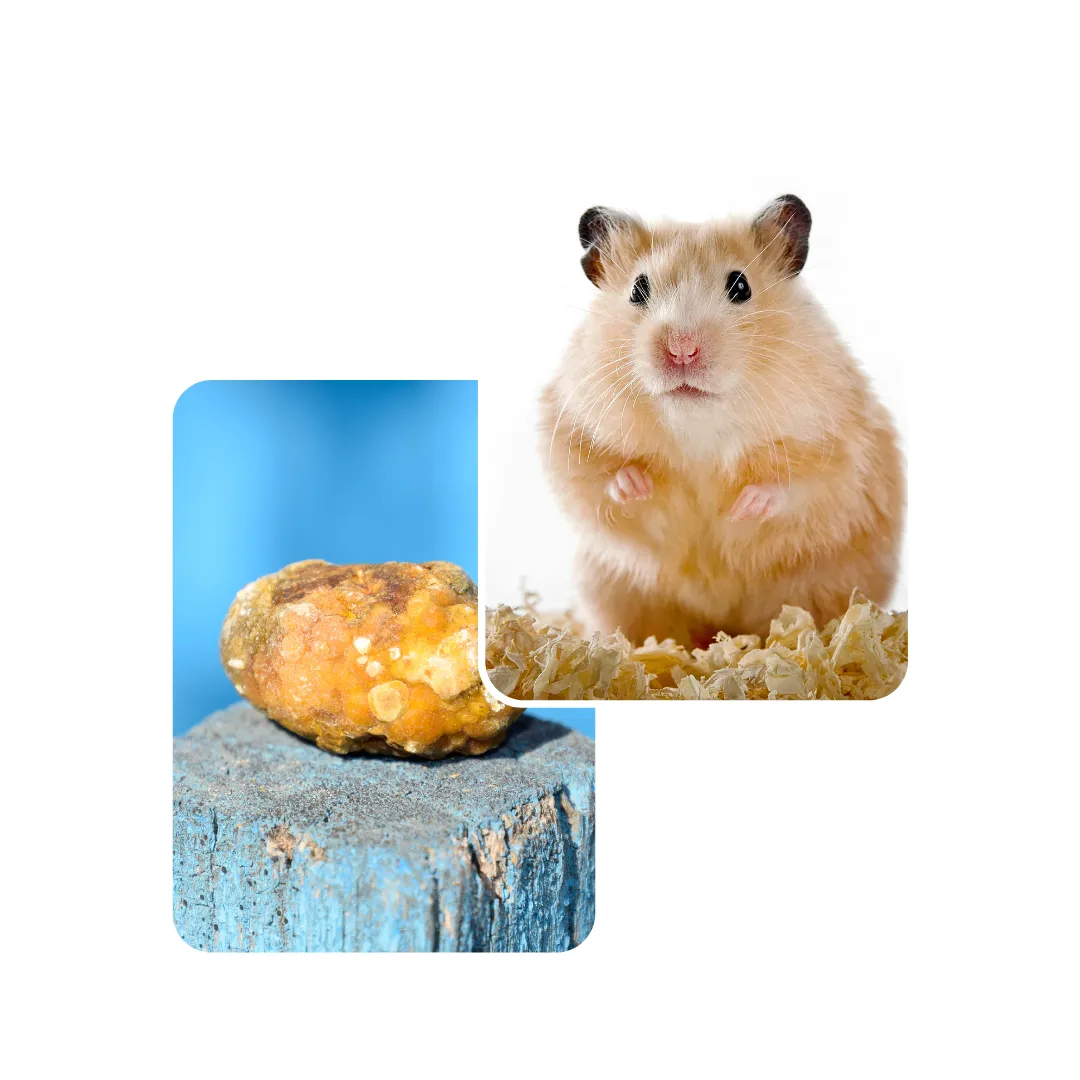
Bladder stones in hamsters develop when minerals such as calcium, magnesium or phosphate crystallize inside the bladder. Over time, these crystals grow into hard deposits that irritate the bladder lining and make urination painful.
In some cases, genetics or age make certain hamsters more vulnerable, as their kidneys and bladder don’t filter minerals effectively. Preventing bladder stones starts with a balanced diet, constant access to clean water and maintaining cage hygiene. Spotting early signs like blood in urine, straining or squeaking when urinating helps ensure timely treatment and prevents serious complications.

Your hamster may squat for a long time in the litter area but produce only drops of urine or none at all. This is one of the most common signs of bladder stones.
Instead of normal urination patterns, your hamster may go repeatedly but release only tiny amounts. This is because stones partially block the bladder outlet.
Because urine leaks in small amounts, the fur around the bottom may stay wet, dirty and sticky, sometimes with a strong smell.
If a stone causes partial or complete blockage, the bladder becomes swollen. Owners may notice the belly looking rounder or feeling firm to the touch.
Pink, red or rusty-colored urine often signals internal bleeding from the bladder wall being scratched by stones. This is a clear warning sign.
Hamsters may squeak, cry out, or stay hunched up when trying to urinate, showing that the process is painful.
Bladder pain makes hamsters eat less. Combined with stress, this leads to noticeable weight loss over time.
Bladder stones are hard mineral deposits that form in the urinary bladder, making it painful or difficult for your hamster to pee.
Look for straining, blood in urine, frequent small urinations or painful squeaking when trying to pee. These are red flags.
Yes. If a stone blocks the bladder completely, it can cause kidney failure or bladder rupture within 1–2 days.
Diet high in calcium, dehydration, infections or genetic predisposition are common triggers.
Yes. Feed a balanced diet, avoid excess calcium-rich foods, ensure constant access to clean water and keep the cage clean to prevent infections.
Click the Appointment button or visit our clinic directly. Fast action saves lives.
Your pet deserves expert care – Subscribe now for trusted tips and updates from our pet experts.
